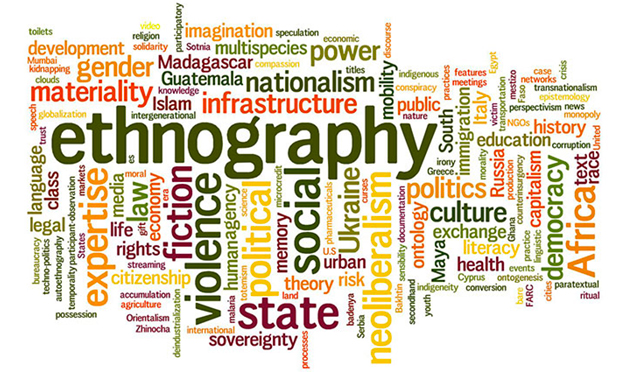Ethnography is a qualitative research method rooted in anthropology that seeks to understand and interpret the complexities of social interactions within particular cultural contexts. It involves immersive observation of the subjects in their natural environments, enabling researchers to delve into the subtleties and nuances of daily life. Through ethnography, scholars garner insights into behaviors, customs, and practices that define a community, revealing not only the overt actions of individuals but also the underlying cultural narratives that inform them.
The origins of ethnography can be traced back to early anthropological studies, where researchers conducted in-depth fieldwork among indigenous populations. This approach has evolved, incorporating diverse methodologies and theoretical frameworks. Ethnography is not confined to anthropology alone; it has permeated various disciplines, including sociology, education, and cultural studies, thereby enriching empirical investigations across multiple fields.
There are several types of ethnographic studies, each with its own distinct characteristics and focus areas. Classic ethnography, for instance, signifies an extensive period of fieldwork where the researcher lives within the community being studied. This immersive style emphasizes participant observation, enabling the researcher to uncover intricate social dynamics. Classic ethnographers often employ detailed note-taking, visual documentation, and audio recordings to capture the essence of their subjects’ lives.
In contrast, rapid ethnography is a relatively modern adaptation that occurs over shorter timeframes, usually within a few weeks or months. This method is often employed in business contexts or social service assessments, where immediacy is crucial. By merging qualitative techniques with fast-paced analysis, rapid ethnography allows for the gathering of valuable insights without the extensive timeline typically associated with traditional ethnography.
Virtual ethnography is another innovative approach that examines social interactions occurring in digital spaces. As technology advances and online communities proliferate, researchers engage with participants through social media, forums, and other digital platforms, analyzing their interactions and behaviors within these virtual realms. This method raises questions regarding identity, representation, and the impact of technology on social practices.
Autoethnography is a form of ethnography that combines the researcher’s personal experiences with scholarly analysis. Through self-reflection and narrative storytelling, autoethnographers explore their own cultural identities while contextualizing them within broader societal frameworks. This introspective methodology challenges traditional boundaries of research by utilizing the researcher’s life experiences as a critical lens for understanding cultural phenomena.
Furthermore, participatory ethnography encourages collaboration between the researcher and the community members. Rather than merely observing, ethnographers engage participants as co-researchers, fostering a sense of ownership and empowerment within the community. This approach often leads to transformative outcomes, as the community gains agency in the research process, thereby allowing for the emergence of grassroots solutions and initiatives.
When delving into the ethnographic process, one can expect a plethora of methodological considerations. Fieldwork is a cornerstone of ethnography. Researchers navigate multifaceted terrains, establishing rapport with participants while maintaining ethical standards. Gaining trust is paramount; participants should feel welcomed and safe sharing their stories and experiences. Researchers often utilize reflexivity to ensure critical self-awareness, questioning their biases and the potential impacts of their presence on the community.
Data collection methods in ethnography can encompass various techniques, including informal conversations, structured interviews, field notes, and visual documentation. Triangulation, the process of corroborating findings through multiple data sources, is also integral to enhancing the validity and reliability of the research. This methodological diversity allows for comprehensive interpretations and enriches the overall analysis.
Once data has been collected, analysis becomes crucial. Ethnographers often utilize thematic analysis, coding data for recurring patterns and themes that emerge from the observations. Narrative analysis is also commonly employed, focusing on the stories that participants share. These narratives illuminate individual perspectives while providing a collective understanding of the cultural fabric within the studied community.
Ethnographic findings are often disseminated through diverse formats. Academic publications, conference presentations, and community reports are common avenues for sharing results. Furthermore, some ethnographers engage with the public through multimedia platforms, producing documentaries, podcasts, or interactive exhibitions to communicate their findings in accessible ways. By making research findings available to wider audiences, ethnographers contribute to ongoing dialogues about cultural understanding and social change.
The impact of ethnographic research extends beyond academia. Insights garnered from ethnographic studies can inform policy decisions, enhance educational curricula, and improve community services. By amplifying marginalized voices and shedding light on societal injustices, ethnography serves as a powerful tool for social transformation. It fosters empathy and understanding, bridging gaps between diverse cultural groups and promoting inclusivity in societal discourse.
In conclusion, ethnography emerges as a dynamic and versatile method for exploring the intricacies of human behavior within cultural contexts. With its roots in anthropology, ethnographic research has evolved to encompass various methodologies that adapt to the complexities of modern society. From traditional immersive studies to innovative virtual investigations, ethnography continues to unveil the rich tapestries of human experience. By examining the multifaceted interactions within communities, ethnographers play a pivotal role in contributing to the broader understanding of social phenomena, fostering meaningful connections among individuals, cultures, and societies.
